2024: UF Again Wins Recertification By Large Margin
Oct. 22, 2024
(CEDAR FALLS, Iowa) The votes are in, and UNI faculty members (again) overwhelmingly supported United Faculty’s recertification: 98.3% who voted supported UF!
This year continues the extraordinarily high levels of support United Faculty receives from UNI faculty. In Fall 2018, 97% of voting faculty supported UF with a YES vote. In Fall 2020, 97.5% of those voting supported UF, and again, in Fall 2022, 97% of faculty voting supported United Faculty.
Thank you for your votes! We appreciate your support, and look forward to continue representing UNI faculty!
2022: Faculty Again Overwhelmingly Support United Faculty in Recertification Vote
Nearly 80% of eligible faculty participated in the voting, and of those who voted, 97% voted yes for United Faculty! Thank you, faculty!
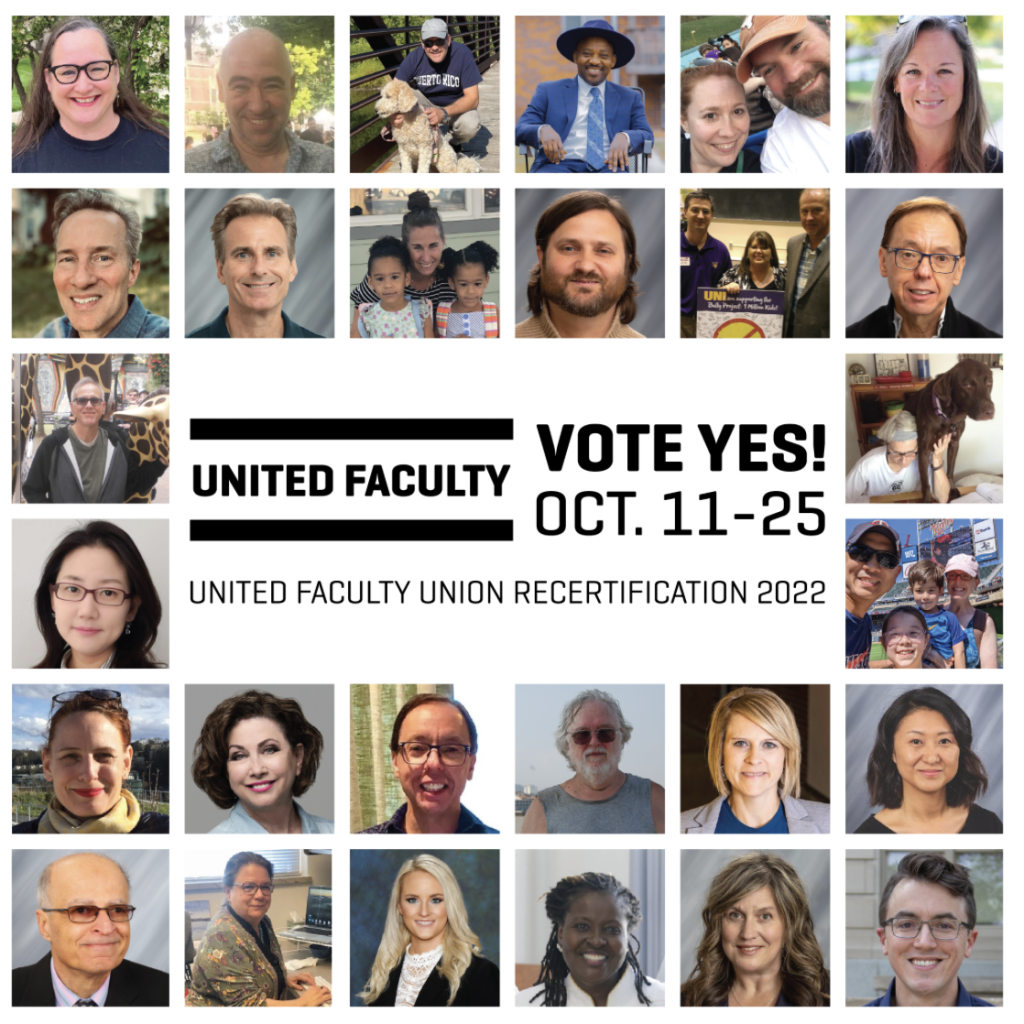
2020: University of Northern Iowa Faculty Wins Big Again in Second Recertification Vote
“I could not be more proud that 83.7% of us participated in the vote and that 97.5% of those who voted, voted yes for UF. Wow!” United Faculty President Becky Hawbaker said.
“Thank you, faculty colleagues, for once again putting your trust in UF to represent you in bargaining and advocacy. Thank you to all our UF leaders (formal and informal) who shared testimonials, reached out to others to encourage them to vote, and assisted us with record keeping and organizing. Thank you to every single faculty member who took the time to vote at a time when we are all so busy and stressed.
Finally, a very special thank you to UNI Graphic Design major Sarah Westholm, who designed this year’s campaign materials and who took charge of our social media on top of her studies, other work, and being manager for the UNI Volleyball team. Isn’t she awesome?
UF is very lucky to have all of you in our corner, and we promise to continue having your back. Onward to bargaining and continued advocacy!,” Hawbaker said.
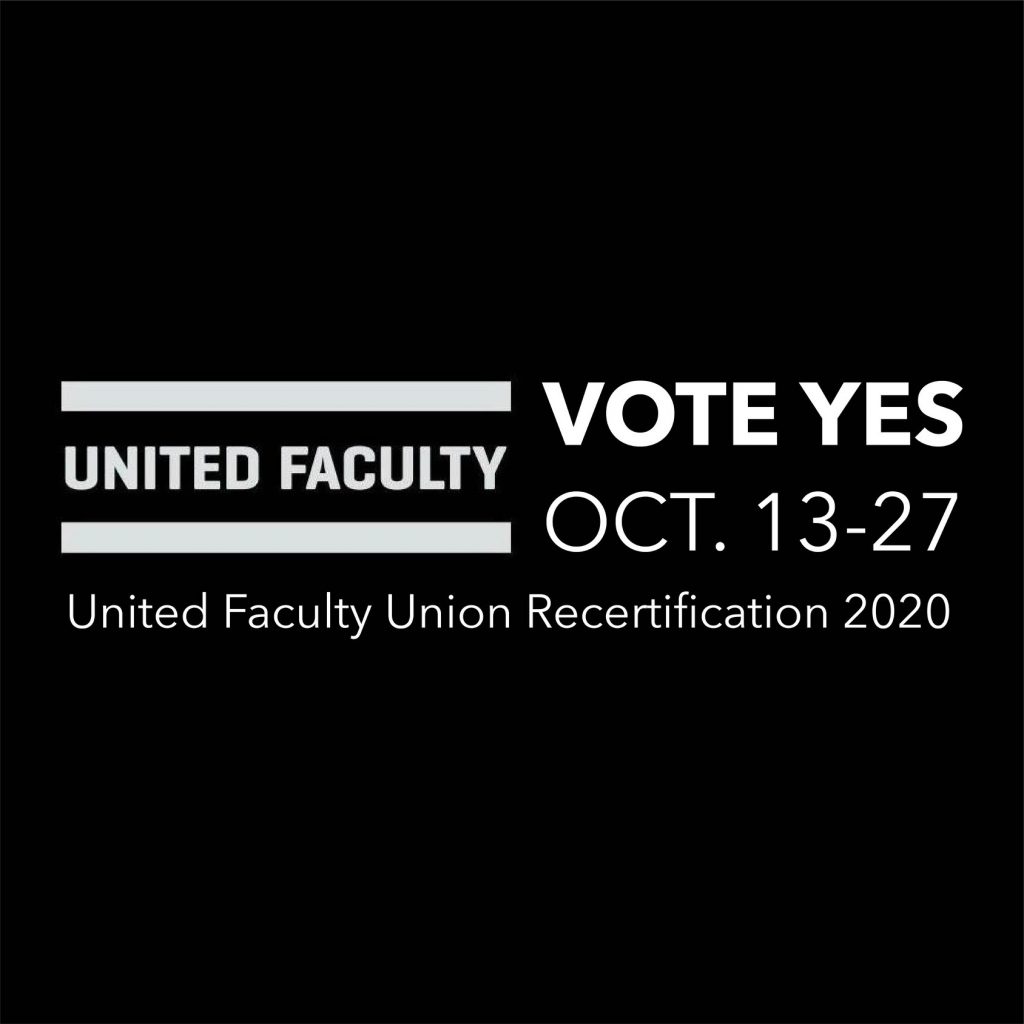
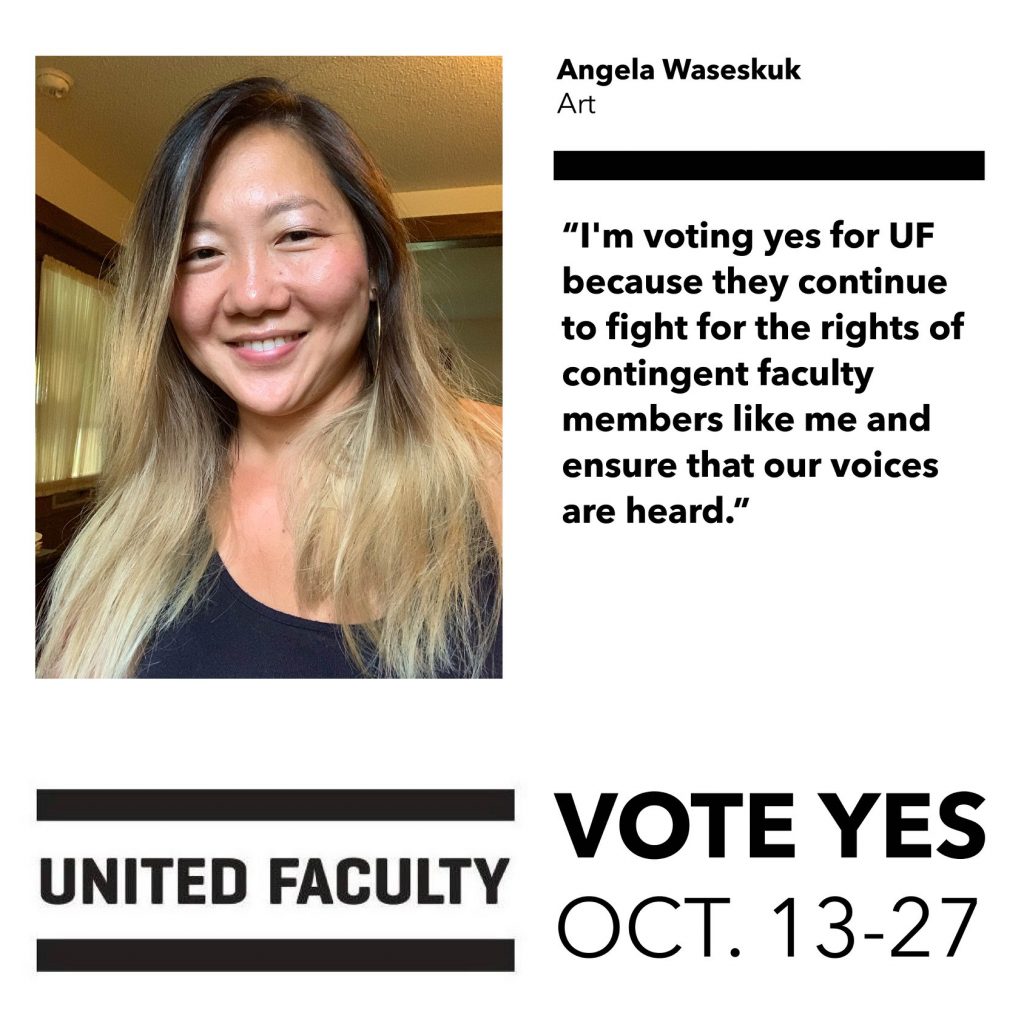
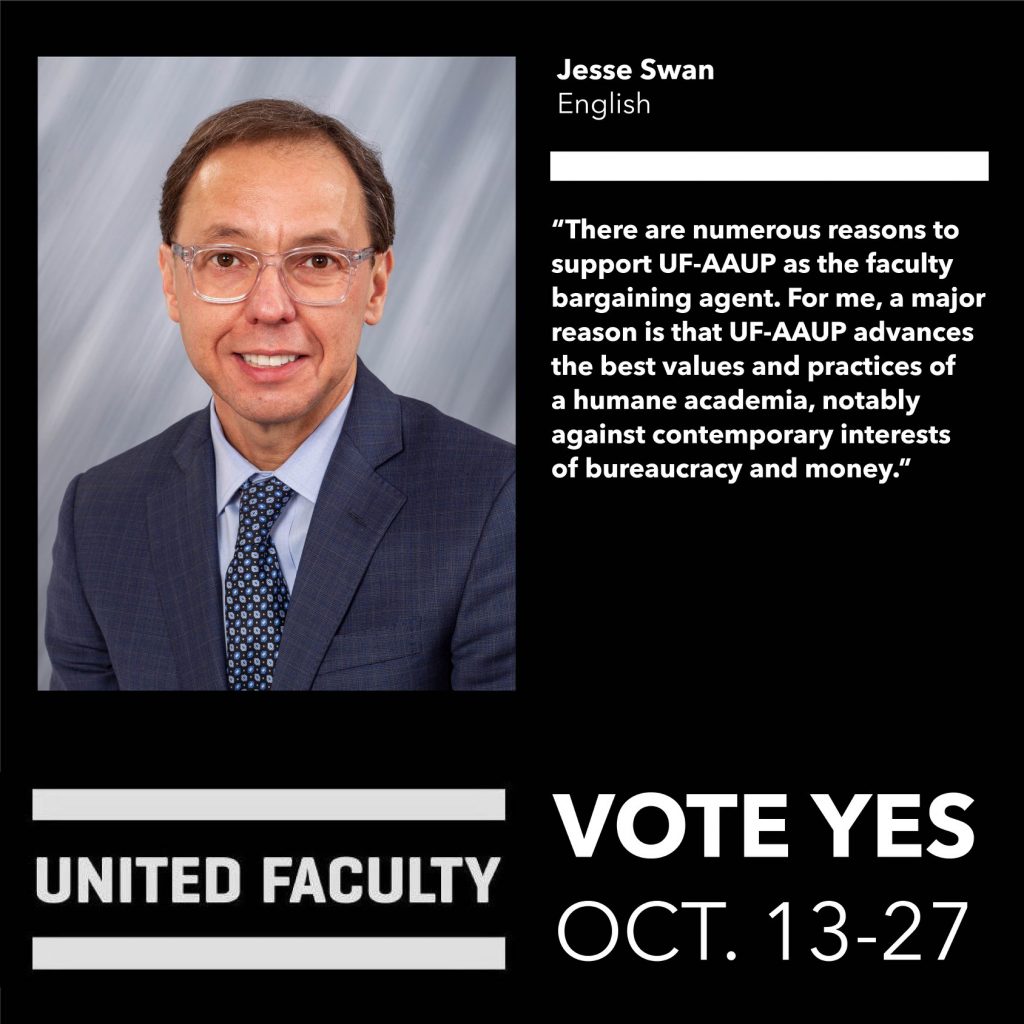

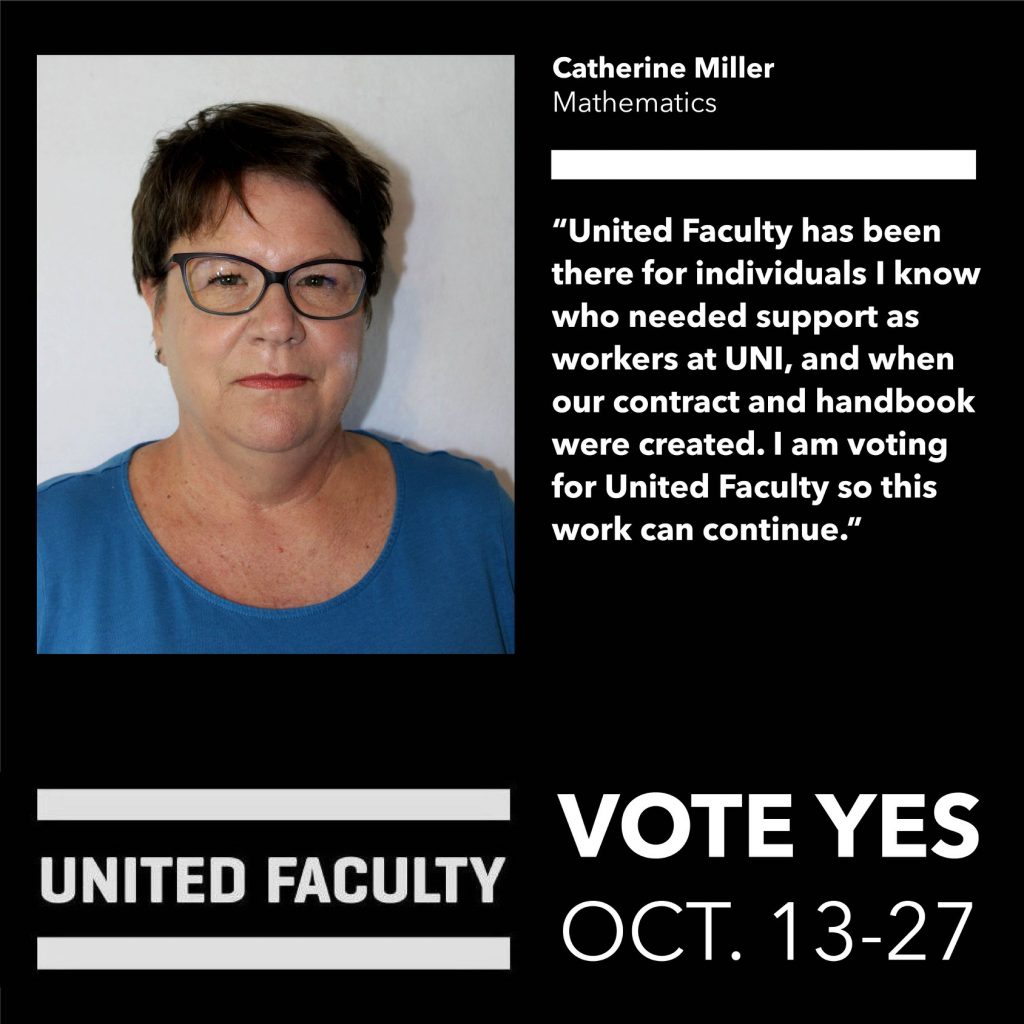
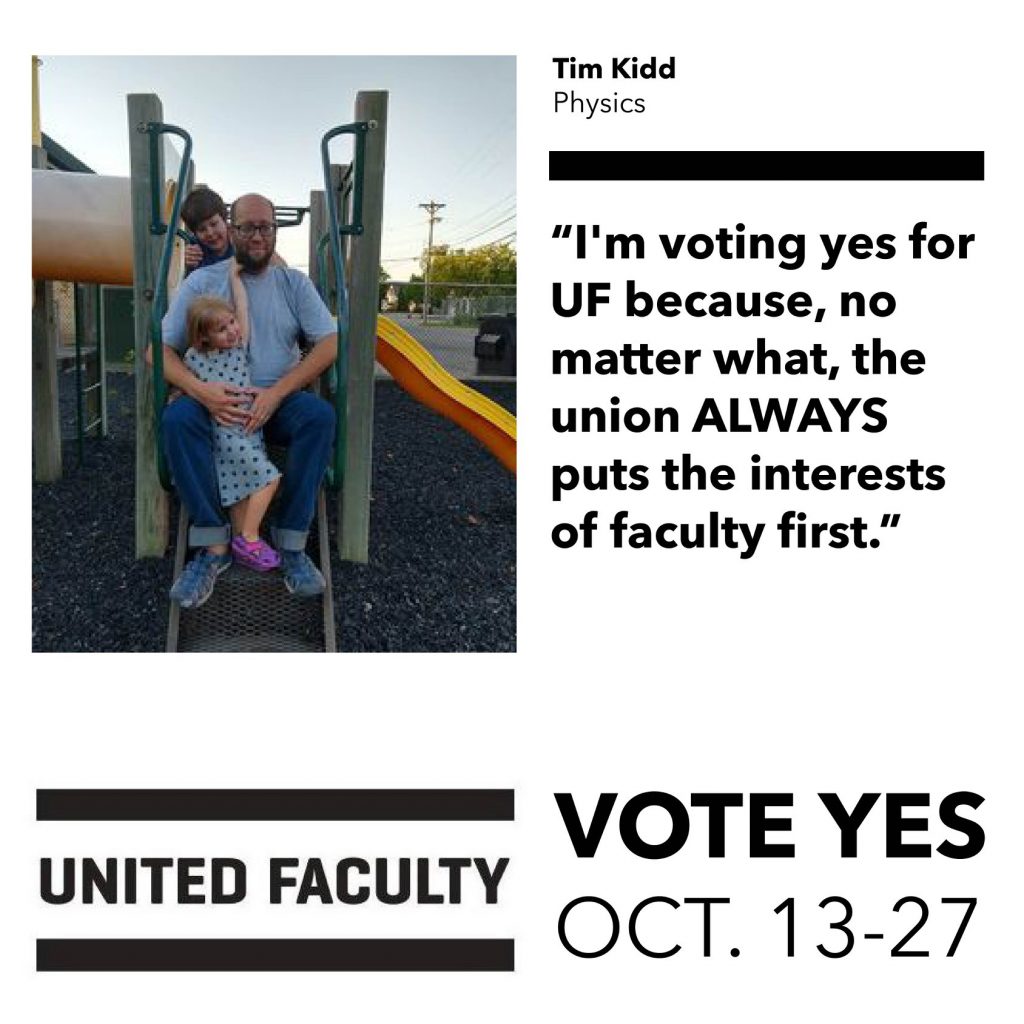
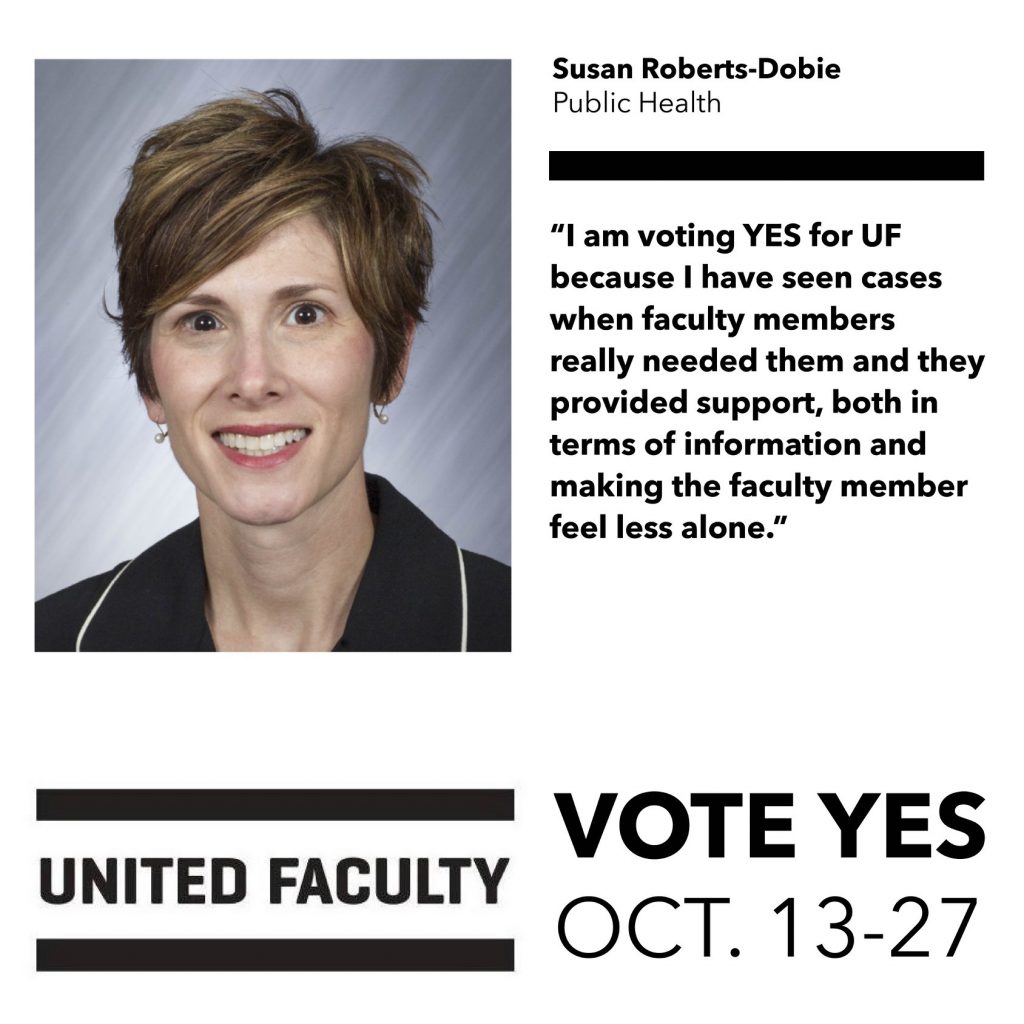
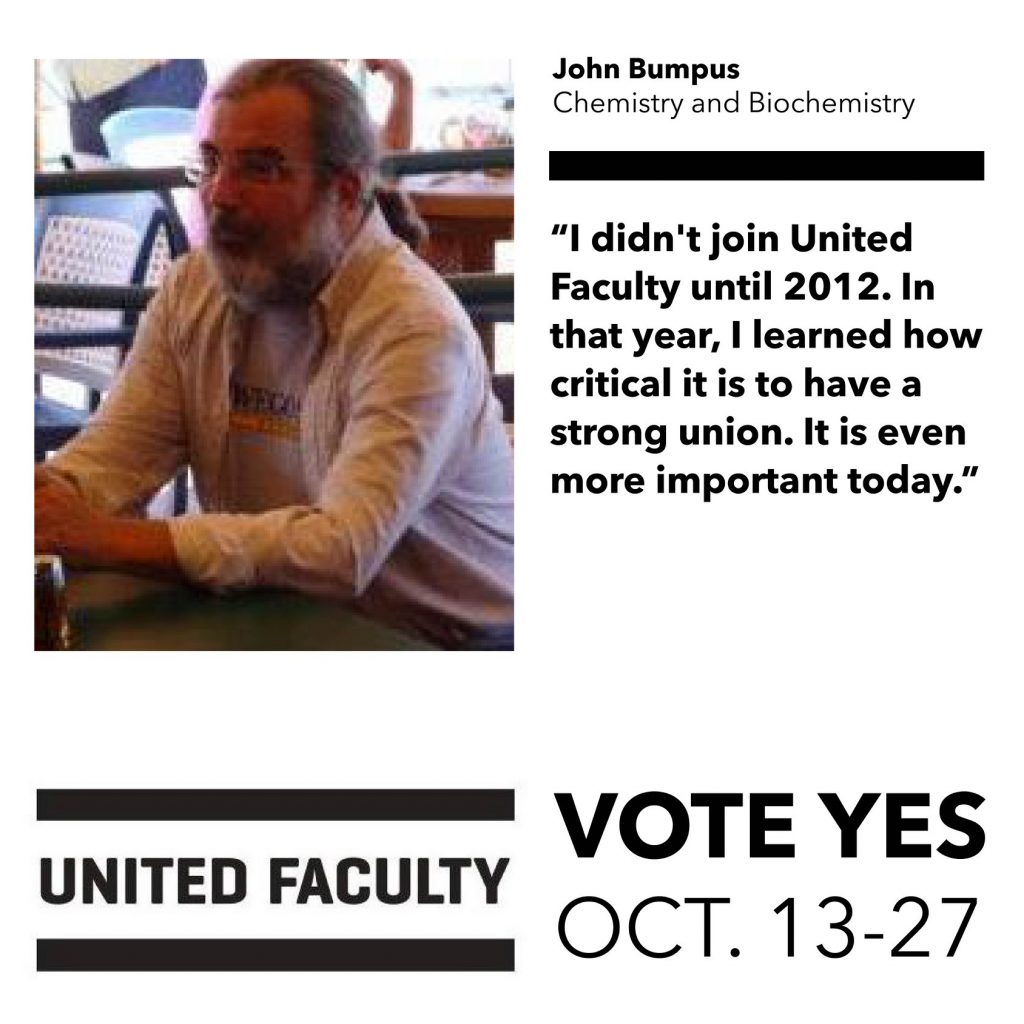

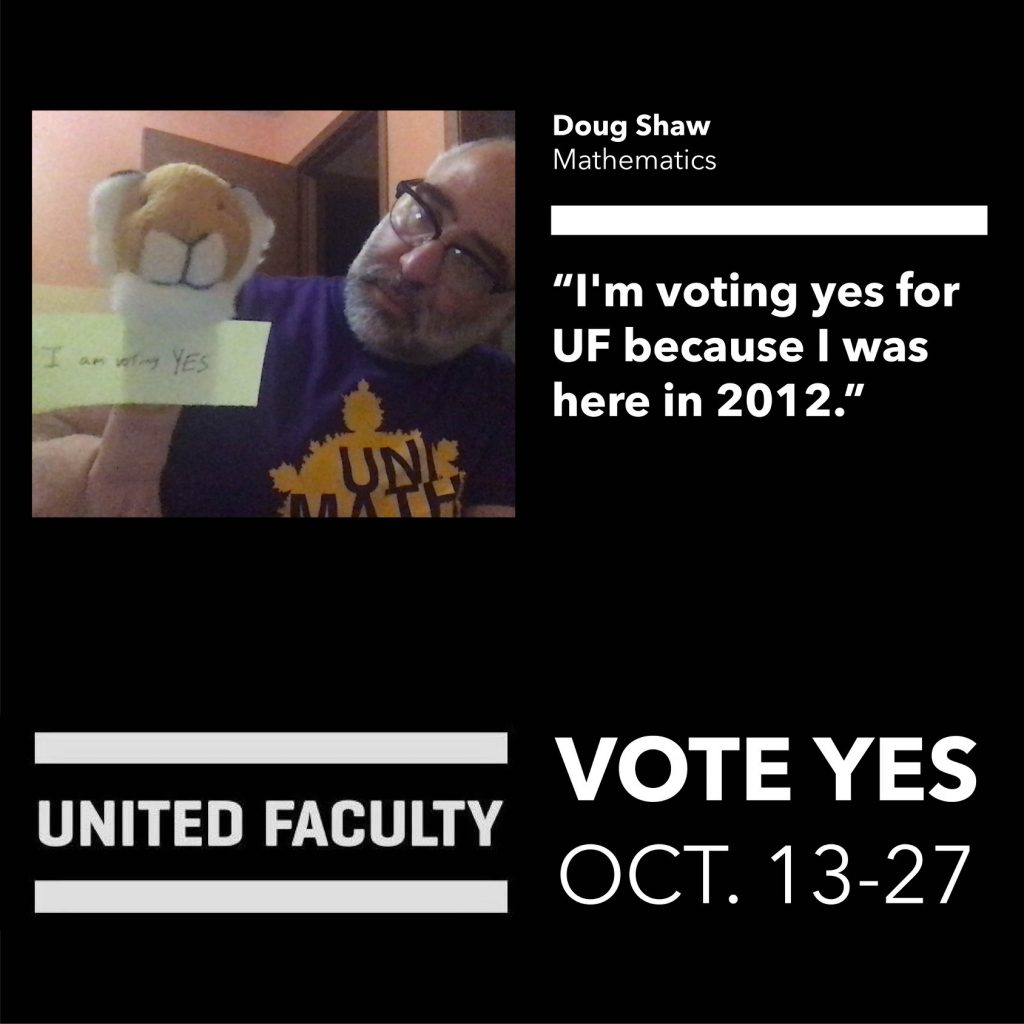
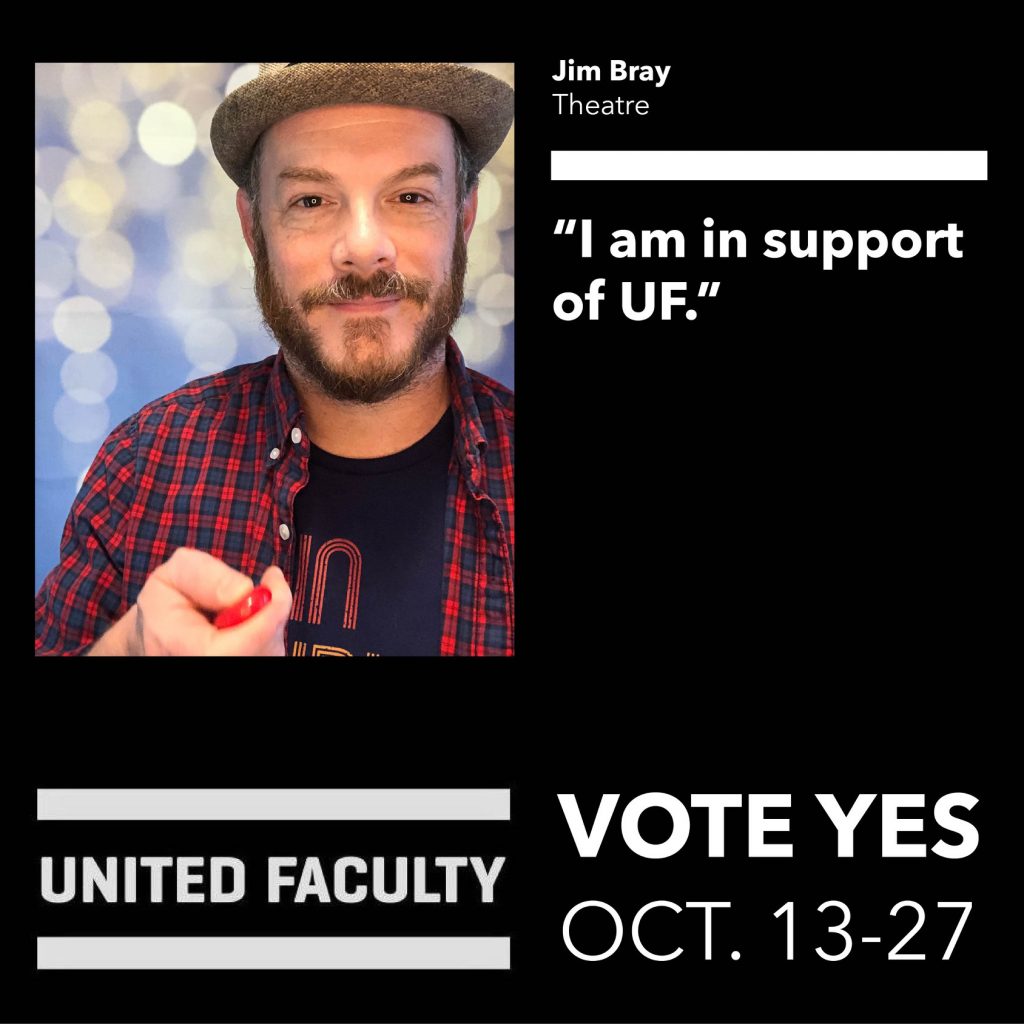
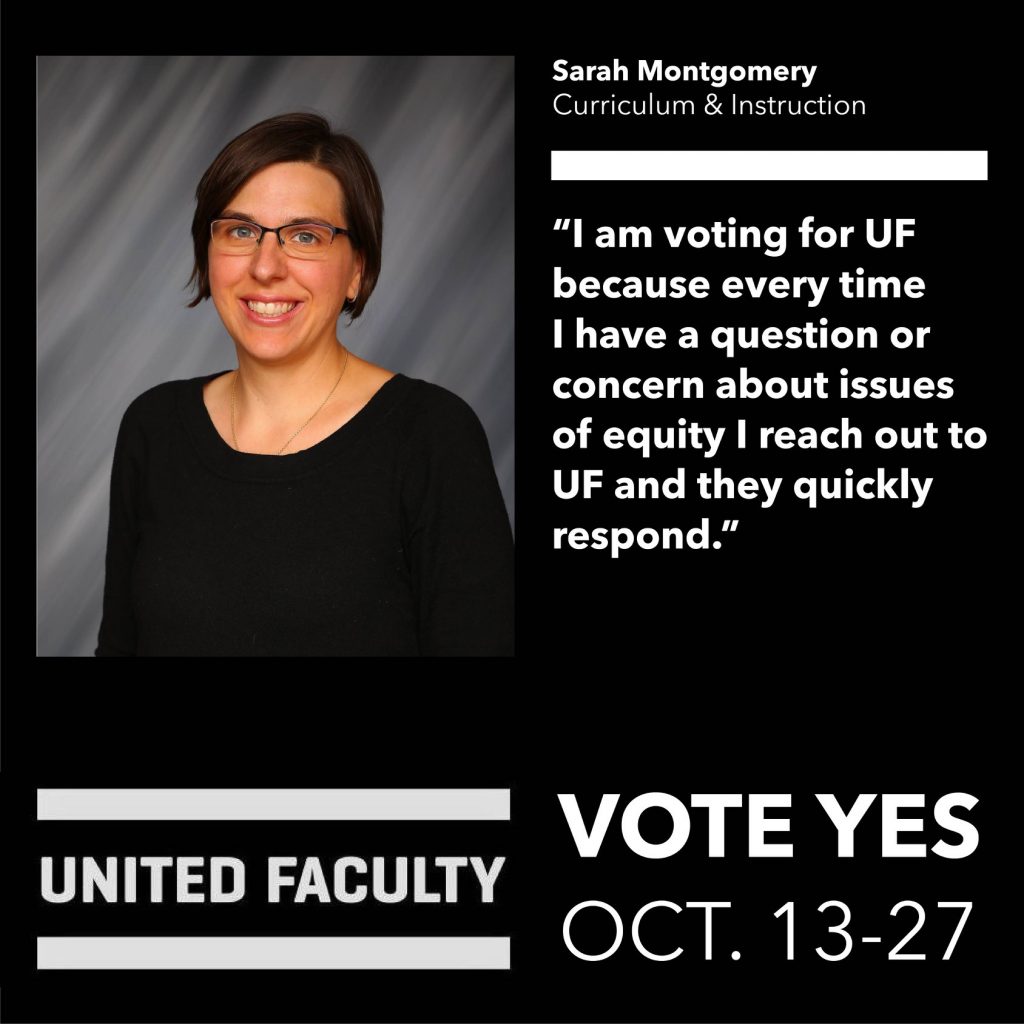
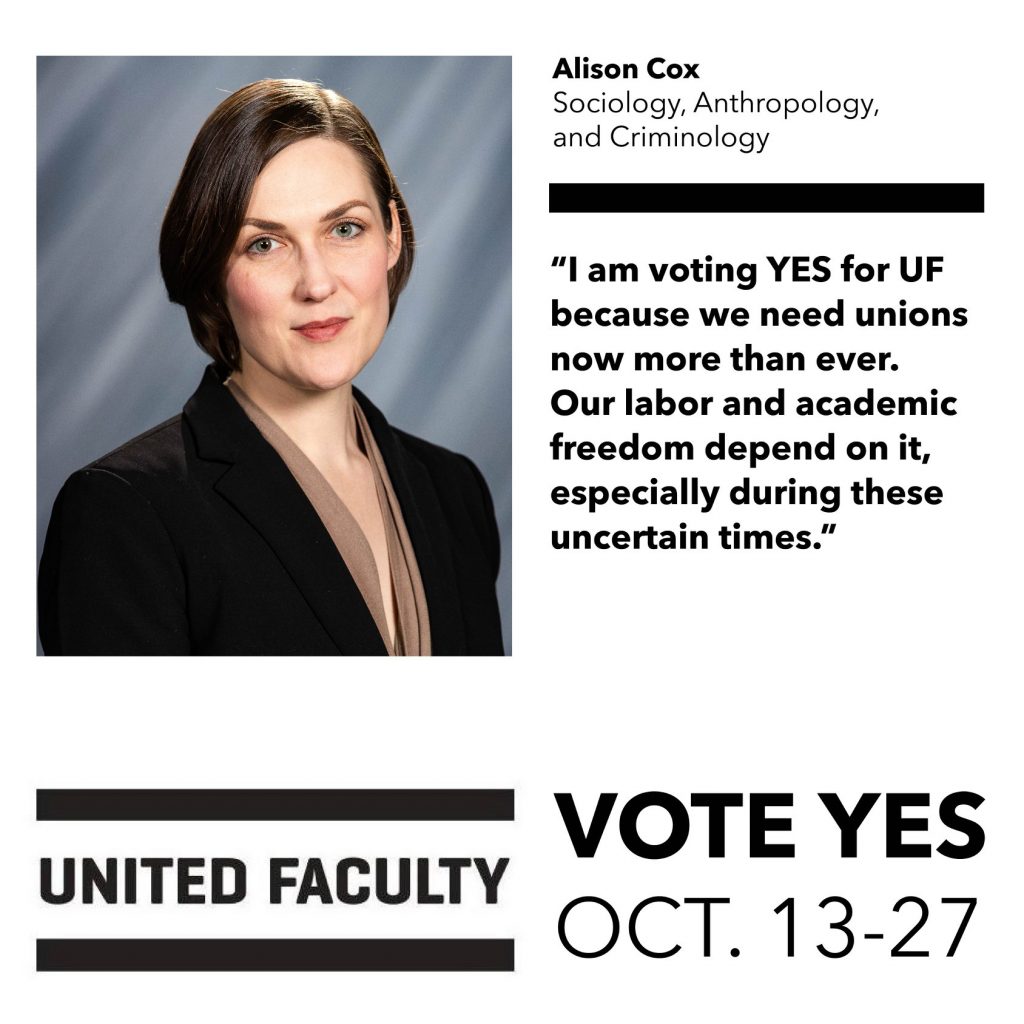
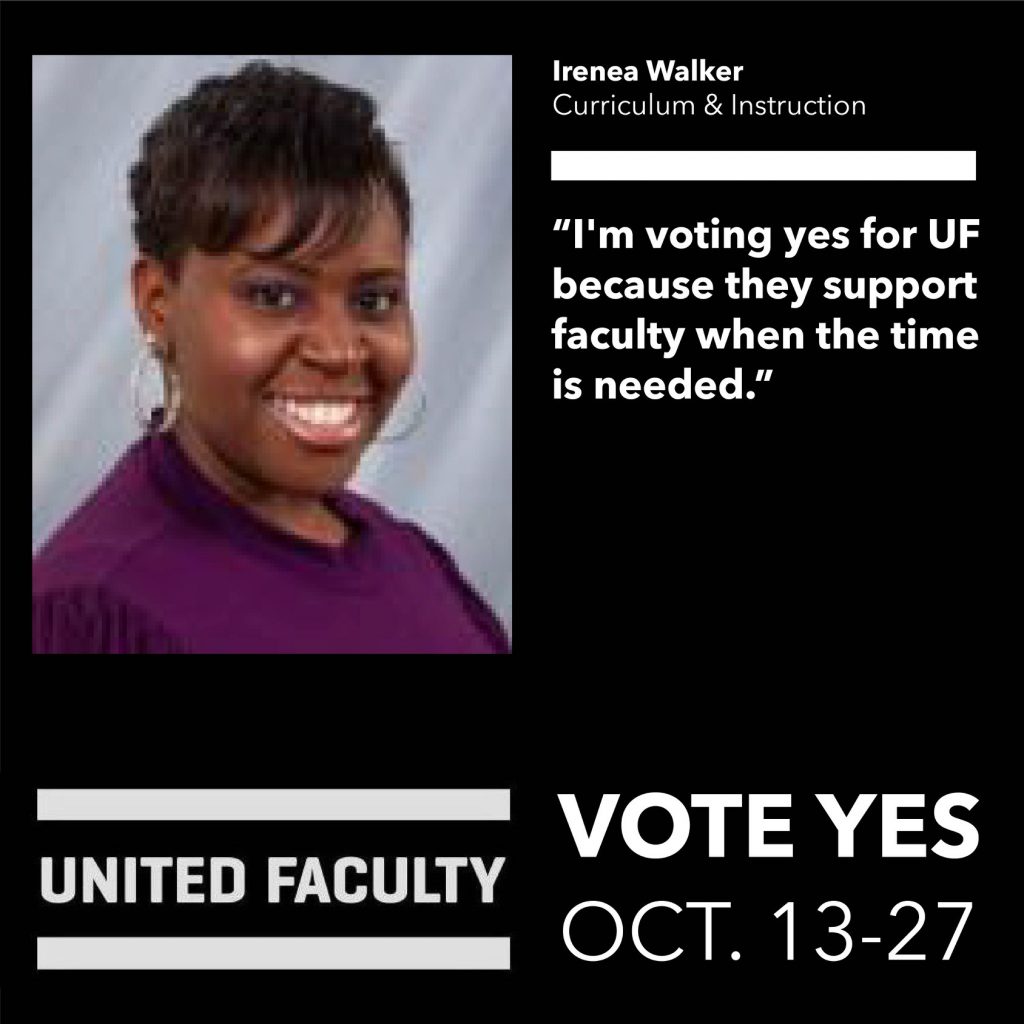
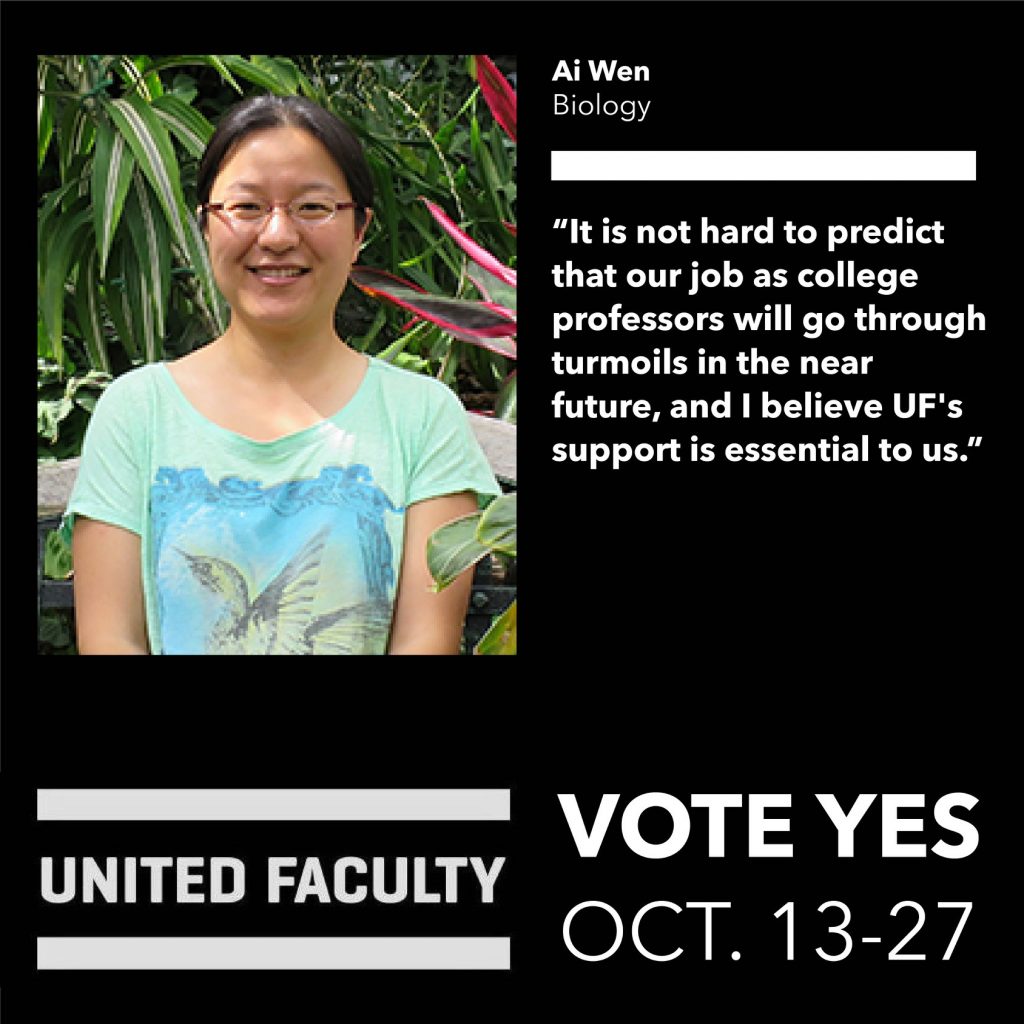
October 30, 2018, Source: AAUP Updates
2018: University of Northern Iowa Faculty Votes To Recertify Union With 85% Support
This week the United Faculty of the University of Northern Iowa (UNI) successfully finished its first union recertification election. Recertification became necessary after a 2017 bill drastically altered Iowa’s collective bargaining law for state employees. Despite intense anti-union pressure, of the 643 faculty members who were eligible to vote in the election, 547 faculty members voted in favor of United Faculty, a total of 85 percent support overall. The chapter represents full-time faculty and a significant portion of part-time faculty at UNI. United Faculty, first established in 1976, is the sole negotiating agent for the University of Northern Iowa’s faculty members, and it is affiliated with the AAUP.
Carissa Froyum is an associate professor of sociology at UNI and United Faculty’s vice president:
“The results of the election show that repeated attempts to dismantle unions in Iowa have failed. In fact, they have made us stronger,” Froyum says. “We are more organized than ever, and we won’t back down. Our union is unique because it brings together tenured faculty, probationary faculty, and non-tenure-track faculty. That combination allows us to address workplace issues for all faculty at UNI.”
The election was conducted electronically between October 15 and 29. In order for the union to maintain its certification, it needed to get majority support from all eligible faculty members, not just a majority of those voting. This stems from new rules passed by the Iowa House and Senate in February 2017. In addition to limiting the mandatory and permissive subjects of bargaining (for example, health insurance and evaluation procedures are now prohibited subjects of bargaining), the law also eliminated payroll deduction and requires recertification of the bargaining unit one year prior to the expiration of each collective bargaining agreement.
Kyle Rudick, assistant professor in communication studies and United Faculty chapter leader for the College of Humanities, Arts and Sciences, commented on the victory: “Ninety-seven percent of voting faculty that cast a ballot said ‘yes’ to keeping union representation. That 97 percent knows that union representation promotes student learning and achievement,” says Rudick citing the near universal support from faculty who cast a vote. “That 97 percent knows a union guarantees fair wages for highly skilled labor. They know that a union is the best way to safeguard academic freedom. And, we won’t stop until we turn that 97 to 100 percent!”
Froyum describes the benefits that the United Faculty chapter offers to tenured faculty, probationary faculty, and non-tenure-track faculty: “We are partnering with the administration to create a promotion ladder for non-tenure-track faculty,” she explains. “We are also advocating for voting rights for non-tenure-track faculty. We have done a salary equity study, which led to real change for all faculty. And we have worked collaboratively with the administration to advance faculty governance on campus. After the recertification vote, everyone knows that we have our faculty’s back, and they have ours.”